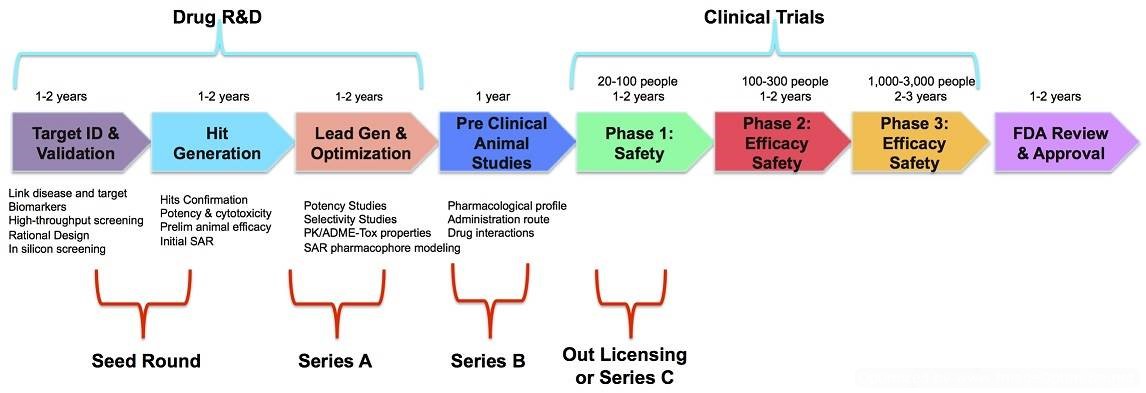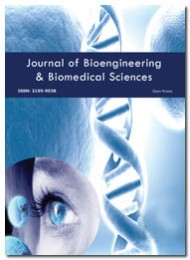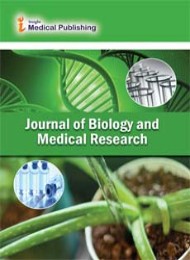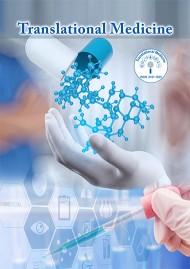Theme: Addressing New Challenges And Emerging Issues In Translational Medicine
Translational Medicine 2021
- Welcome Message
- About Conference
- Session & Tracks
- Market Analysis
- Importance & Scope
- Visa Application Process
- Participation Option & Benefits
We have the delight to welcome and invite you for participation in our energizing Conference. Give us a chance to meet in one of the most wonderful urban communities on the planet.
Translational Medicine and Bio Engineering 2021 feels pleased to declare the beginning of the "5th International Conference on Translational Medicine and Bio Engineering" booked through November 29-30, 2021 in Singapore.
The principle subject of the gathering is "Addressing New Challenges And Emerging Issues In Translational Medicine". Which will cover a wide scope of fundamentally significant theme. Translational Medicine and Bio Engineering 2021 will concentrate on the most recent research and different instruments to treat infections in a helpful manner. This gathering will be the best spot to find out about Translational Medicine and Bio Engineering
Translational Medicine unequivocally respects all of the individuals over the globe from driving colleges, research foundations, expressive associations and all interested to allocate their assessment experiences in 5th International Conference on Translational Medicine and Bioengineering on November 29 -30, 2021 in Singapore.
The aim of the conference is to identify and understand various developments in the field of Translational medicine and Bioengineering. So, the conference provides a platform to all the participants to discuss Translational medicine and Bio Engineering concepts around the world and bring awareness among the people related to it.
Student Poster Competition and Young Research Forum is organized at Conference, to encourage students and recent graduates to present their original research that will be published later in the Conference Series LLC Journals. All the accepted abstracts will be presented at the poster sessions during the conference. Conference Series LLC provides an opportunity to present E-Poster for all the participants who cannot attend the conference with abstract published in the website with DOI number.
Business networking is a venue for vendors to have network and B2B meetings with “Top scientists and colleagues” and with an effective low cost marketing method for developing sales and opportunities and contacts, based on referrals and introductions either face-to-face at meetings and gatherings, or by other contact methods such as Telephone, E-mail, Digital and Increasingly social and business networking websites.
Our Conferences convey new thoughts, convictions, techniques and strategies that legitimately influence how you work together. No other Conference will offer a great roaster of Keynote speakers, quality participants, and convincing substance.
This Conference will give a gathering to the trading of thoughts and legitimate perspectives by leading researchers just as business pioneers and speculators in this exciting field. Remarkable keynote speakers and understood leading researchers and specialists from around the world will be relied upon to share their knowledge.
The event participants are typically high-level decision-makers representing various parts of the industry and many participants are repeaters who know each other. This makes a loose and casual air with the correct settings for gathering new individuals.
The Conference Highlights are:
- Translational medicine
- Bio markers in Translational Medicine
- Role of Translational Research in Blood Disorder
- Translational cardiology and vascular medicine
- Translational Therapeutics and Technologies
- Clinical Epidemiology
- Translation of Animal Models to the Clinic
- Clinical and translational oncology
- Immunology and Infectious Diseases
- Advances in Translational Medicine
- Bioengineering and Biomedical Engineering
- Bioelectrical and Neural Engineering
- Biomedical Robotics and Mechanics
- Bio Medical Signal processing
- Biometric And Bio Measurement
- Biomaterial and Biomedical Optics
- Cancer Genomics and Epigenomics
- Translational Bioinformatics
Target Audience:
- Molecular Biologists
- Scientists in Industry and Academia
- Postgraduates and Postdocs
- Scientists
- Public Health Professionals
- Pharma Vaccines and Biotech Industry
- Regulatory Agencies
- Policy Makers and Government Officials
- Clinical Practitioners
- Preclinical Researcher Molecular Biologists
Following are the statistics percentage-wise:
|
Physicians |
35% |
|
Researchers |
30% |
|
Academia |
30% |
|
Others |
5% |
Why to Attend Translational Medicine and Bio Engineering 2021?
International Conference on Translational Medicine and Bio Engineering may be a distinctive platform that aims to debate and generate new ideas for treatment and management of Medicine will witness an assembly of consultants from everywhere the globe who will present their cutting-edge Research for the betterment of Translational Medicine and Bio Engineering.
Other Reasons:
• Gathering of best Researchers and budding talent from across the world.
• Showcase your analysis and find world Recognition.
• Avail possibilities to move with world-Renowned Scientists.
• Perfectly designed schedule Workshop, Expo areas, brainstorming sessions and lots of Platform to network with fellow medical care clinicians.
Track 01: Translational Medicine
Translational medicine, also called translational life science, preclinical research, evidence-based research, or disease-targeted research, area of research that aims to enhance human health and longevity by determining the relevance to human disease of novel discoveries within the biological sciences. Translational medicine seeks to coordinate the utilization of latest knowledge in clinical practice and to include clinical observations and questions into scientific hypotheses within the laboratory.
- Human Diseases
- Nutria Genomics
- Bio Informatics
- Biotechnology
- Chronic Disease
Track 02: Bio markers in Translational Medicine
The field of biomarker discovery has exhibited an excellent surge of interest in recent years. Biomarkers are often used for several purposes including diagnosis, prognosis and selecting appropriate patient therapy, and should provide information on disease mechanism or progression. Translation of such markers to clinical testing encompasses phases for his or her discovery and characterization, assay development, and eventually implementation using automated platforms employed in clinical laboratories.
- Biological Marker
- Quantifiable Medical Signs
- Clinical State
- Epidemiological
- Pathophysiological
​Track 03: Role of Translational Research in Blood Disorder
Translational research has many various potential definitions. There are two broad elements: one is research that is a bridge between basic science and therefore the development of a therapeutic intervention; the second also referred to as knowledge translation explores why a clinically established product isn't used more widely and/or further characterizes its optimal use. The primary Translational Research element has always been an integral part of transfusion medicine; it's previously been mentioned as applied research or development.
- Therapeutic Intervention
- Knowledge Translation
- Transfusion Medicine
- Novel Therapy
- Applied Research
- Molecular Biology
Track 04: Translational cardiology and vascular medicine
This programme aims to develop the interest in translational cardiovascular research and medicine, and equip with an enhanced knowledge, understanding and critical awareness of the current approaches and emerging research in this area.
- Cardiovascular Research and Medicine
- Acute coronary syndrome
- Hypertension
- Cardiac arrest
- Electrocardiography
- Cardio metabolic Health- Diabetes, Obesity & Metabolism
- Cardiovascular Pharmacology and Toxicology
Track 05: Translational Therapeutics and Technologies
Advances in knowledge of the molecular alterations of human cancers, refinements in technologies for the generation of genetically engineered mouse models (GEMMs), and therefore the development of cancer therapies have accelerated in recent years. Progress in these fields provides the inspiration for clinically relevant studies to be performed in GEMMs, through which it's possible to glean information on drug efficacy and to spot determinants of sensitivity and resistance to drugs and drug combinations.
- High-Resolution Microscopy
- Mass Spectroscopy
- Cell-Based Assays
- Genomics
- Metabolomics
- Proteomics
Track 06: Clinical Epidemiology
Clinical epidemiology is that the study of the patterns, causes, and effects of health and disease in patient populations and therefore the relationships between exposures or treatments and health outcomes. Areas of research include disease screening and prevention, systematic review methodology, comparative effectiveness research, developing evidence-based practice and policy guidelines, implementation of practices and guidelines in health systems, development of patient-centered registries and data marts within health information systems, creating and testing patient decision aids, and using patient data for quality improvement and research projects.
- Evidence-based Medicine
- Systematic Reviews
- Meta- Analysis
- Screening and Prevention
- Clinical practice Guidance
Track 07: Translational of Animal Models to the Clinic
Despite large investments in drug development, the general success rate of medicine during clinical development remains low. One prominent explanation is flawed preclinical research, during which the utilization and outcome of animal models is pivotal to bridge the translational gap to the clinic. Therefore, the choice of a validated and predictive animal model is important to deal with the clinical question. the present challenges and limitations of animal models are discussed, with attention on the fit-for-purpose validation.
- Alzheimer disease
- Neuro degeneration
- Stroke
- Schizophrenia
- Addiction
- Pain
Track 08: Clinical and translational oncology
Clinical and Translational Oncology is a world journal dedicated to fostering interaction between experimental and clinical oncology. It covers all aspects of research on cancer, from the more basic discoveries handling both cell and biology of tumor cells, to the foremost advanced clinical assays of conventional and new drugs. Additionally the journal features a strong commitment to facilitating the transfer of data from the essential laboratory to the clinical practice, with the publication of educational series dedicated to closing the gap between molecular and clinical oncologists.
- Aentiology
- Pathophysiology
- Pathology
- Epidemiology
- Genome-scale Studies
- Tumor genesis
Track 09: Immunology and Infectious Diseases
Immunology and communicable diseases is that the study of how the body copes with bacterial, viral, or parasitic infections, cancer, autoimmune disorder and other diseases of the system . The system protects us from infection through may be a complex network of cells and tissues designed to fight invading pathogens. Immunology is the study of response of the system to bacterial, viral or parasitic infections. It's also the study of diseases caused by disorders of the system. Autoimmune diseases are diseases that cause your system to attack your own body.
- Cancer Immunology
- Computational Immunology
- Epidemiology
- Immune System Disorders
- Prevention
- Testicular Immunology
- Viral Immunology
Track 10: Advances in Translational Medicine
Advances in Translational Medicine Research may be a peer reviewed, open access journal dedicated to publish the insights within biomedical and public health research that aims to perk up the health of people and therefore the community by translating findings into diagnostic tools, medicines, procedures, policies and education. Translational Medicine Research is encouraging researchers from the rapidly growing discipline in biomedical research and aims to expedite the invention of latest diagnostic tools and coverings by employing a multi-disciplinary, highly collaborative; bench-to-bedside approach.
- New discoveries in genetics
- cell biology
- Hematology
- Immunology
- Infectiology
- Hematopoietic
- Cell Transplantation
- Cellular and Gene Therapy
Track 11: Bioengineering and Biomedical Engineering
Biomedical engineering is a more specialized version of bioengineering, utilizing many of the discipline’s principal theories and putting them to practice to improve human health. The field is focused on the production of new tools and processes that can be used in various health care contexts. Biomedical engineers commonly work to solve issues that are present in the life sciences. That work on prosthetics or the emerging field of cybernetics also referred to as biomechanical engineers. Items like the pacemaker, artificial heart and cochlear implant are all results of biomedical innovation.
- Prosthetics
- Laser Surgery
- Pacemakers
- Magnetic Resonance.
- Lab-on-a-Chip
- Radiation Therapy
Track 12: Bioelectrical and Neural Engineering
Neuro Engineering and Bioelectricity involves the study of exitable cells and tissues, and how the electrical properties of these cells and tissues affect physiologic function and diseases. Neuro engineering and Bioelectricity research involves a good range of experimental, computational, and quantitative research focused on clinically-relevant health conditions and diseases. Currently, Neuro engineering and Bioelectricity includes a diverse range of applications including neuroplasticity, computational modeling, and cardiac electrophysiology.
- Computational Neuroscience
- Cybernetics
- Neural Tissue Engineering
- Neuro Prosthetics
- Neural Implants
Track 13: Biomedical Robotics and Mechanics
The Biomedical Robotics Research focus area is centered on the planning, development, and evaluation of medical robotics systems and smart assistive robotic platforms that enhance the physical capabilities of both patients and clinicians via advancements in mechanical design, modeling and control, sensors and instrumentation, computing, and image processing. Core Research in this area include medical robotics, haptic interfaces, machine learning, soft robotics, robot-assisted surgery and rehabilitation, tissue modeling, human augmentation, biomechanics, and human-robot interaction.
- Medical Robotics
- Haptic Interfaces
- Robot-Assisted Surgery and Rehabilitation
- Tissue Modeling
- Human Augmentation
- Biomechanics
- Human-Robot Interaction
Track 14: Bio Medical Signal processing
Our bodies are constantly communicating information about our health. This information are often captured through physiological instruments that measures pulse , vital sign , oxygen saturation level, blood sugar , nerve conduction and brain activity. Such measurements are taken at specific points of your time and noted on a patient’s chart. Physicians actually see but one-hundredth of those values as they create their rounds and treatment decisions are made based upon these isolated readings.
- Statistical Process
- Pattern Recognition
- Filter Theory
- Neurophysiology
- Probabilistic Modelling
Track 15: Biometric And Bio Measurement
Nowadays wearable devices are developed for effectively measuring biological data. These devices have tissue allege and noise problem. To unravel these problems, biometric measurement supported a non-contact method, like face image sequencing is developed. Which makes it possible to live biometric data with none operation and side effects. However, it's impossible for a foreign center to spot the person whose data are measured by the novel methods.
- Partial pressure suit
- Counter pressure
- Circulatory physiology
- Numerical model
- Iris Recognition
- Facial Recognition System
Track 16: Biomaterial and Biomedical Optics
Bio photonics is the subject that deals with the study of optical procedures in biological systems, composed of those which occur naturally and in bioengineered materials. Biomedical optics accents on the planning and application of advanced optical techniques to resolve problems in medicine and biology
- Biocompatible Optical Materials
- Biodegradable Waveguides
- Elastic Waveguides
- Bio photonic Waveguides
- Phototherapy
- Optogenetic
Track 17: Computational Biology and Bioinformatics
Computational biology and bioinformatics is an interdisciplinary field that develops and applies computational methods to large collections of biological data, like genetic sequences, cell populations or protein samples, to make new predictions or discover new biology. The computational methods used include analytical methods, mathematical modeling and simulation.
- Molecular medicine
- Personalized medicine
- ​Antibiotic resistance
Track 18: Computational Proteomics
Computational Proteomics is the computational methods, algorithms, database and methodologies used to process, manage, analyze and interpret the data produced in proteomics experiment. The broad application of proteomics in several biological and medical fields, are because of the diffusion of high-throughput platform, results in increasing volume of obtainable proteomics data requiring efficient algorithm, new data management capabilities and novel analysis, inference and visualization techniques.
- Data Analysis
- ​Mass Spectrometry
- Post Translational Modifications
- Multiomics Data Analysis
- Multivariate Analysis
- Network Analysis
Track 19: Cancer Genomics and Epigenomics
Epigenetics is defined as heritable changes in gene activity that occurs without alterations in the DNA sequence. The “Cancer Genomics and Epigenomes” has been widely investigated for their involvement in cancer to understand the basic processes of different malignancies. The aggregation of genetic and epigenetic alteration also displays a wide range of heterogeneity making it necessary to develop personalized treatment strategies.
- Genome plasticity
- Genetics and genomics
- Epigenetics
- Chromatin
- Transcription
- Histone-modifications
Track 20: Translational Bioinformatics
Translational bioinformatics is an emerging field in the study of health informatics focused on the convergence of molecular bioinformatics, biostatistics, statistical genetics and clinical informatics. It focus on applying informatics methodology to the increasing amount of biomedical and genomic data to formulate knowledge and medical tools, which can be utilized by scientists, clinicians, and patients. It applies biomedical research to improve human health through the use of computer-based information system
- Toxin Databases
- Bioinformatics
- Healthcare Informatics
- Data Mining
- Electronic Health Records
Whereas the traditional science has been more strengthening the existing hypotheses. Translational Medicine is all about creating insights into clinically significant interactions among drugs, pathways, targets and diseases.
As you can see from the image, the drug discovery process is a time consuming and expensive process. Approximately, it takes around 15 years and USD 800 Million

Even if a drug discovery project fails before the clinical trials investors might face a loss of around USD 100 – 250 Million. Whereas if the drug fails in any of the stages within the clinical phase,
Before 1920, diabetes
International Conference on Translational Medicine and Bio Engineering 2021 be a distinctive platform which can collect international leaders within the field of Medicine from round the world to Paris, France. We will witness distinguished academicians within the field of Translational Medicine and Bio engineering, public health professionals, Brain researcher’s, scientists, trade researchers, students to exchange concerning state of the art analysis.
The aim of this conference is to come up with new concepts for higher treatment in an exceedingly convenient manner which will be helpful throughout the globe.
This conference can host workshops, symposiums, and different events which can facilitate to exchange new analysis and ideas concerning Translational Medicine and its different branches.
Translational Medicine often referred to as translational science, "an interdisciplinary branch of the biomedical field supported by three main pillars: bench side, bedside, and community" The goal of translational medicine is to combine disciplines, resources, expertise, and techniques within these pillars to promote enhancements in prevention, diagnosis, and therapies. Accordingly, translational medicine is a highly interdisciplinary field, the primary goal of which is to coalesce assets of various natures within the individual pillars in order to improve the global healthcare system significantly.
Bioengineering is the application of life sciences, physical sciences, mathematics and engineering principles to define and solve problems in biology, medicine, health care and other fields.
Bioengineering is a relatively new discipline that combines many aspects of traditional engineering fields such as chemical, electrical and mechanical engineering.
The difference between biological engineering and biomedical engineering are often unclear, as many universities uses the term "bioengineering" and "biomedical engineering" interchangeably. Biomedical engineers are specifically focused on applying biological and other sciences toward medical innovations, whereas biological engineers are focused principally on applying engineering principles to biology - but not necessarily for medical uses. Neither "biological" engineering nor "biomedical" engineering is contained within the opposite , as there are often "non-biological" products for medical needs also as "biological" products for non-medical needs.
For conference attendance and participation only Business Visa should be applied. Contact your nearest travel agent/visa information center/ Singapore Embassy for the correct application form.
All visas for visiting / Singapore shall be processed by respective authorities only upon submission of proper documents through proper channel.
In case of non-furnishing of documents, non-adherence to guidelines visas shall be cancelled by respective authorities.
The minimum supportive documents that might be required while applying for / Singapore visa include:
Letter of invitation,
Abstract acceptance letter (if speaker),
Registration payment receipt,
Accommodation Confirmation letter issued under conference letter head.
For letter of invitation and accommodation confirmation, payment of registration fees and accommodation charges is a pre-requisite.
PARTICIPATION OPTIONS: Translational Medicine & Bio Engineering 2021, provides the participants with different modes or ways to participate such as Delegate or Speaker under either ACADEMIC / STUDENT / BUSINESS Category.
- Keynote speaker: 45-50 minutes
- Speaker (oral presentation): 25-30 minutes (only one person can present)
- Speaker (workshop): 45-50 minutes (more than 1 can present)
- Speaker (special session): 45-50 minutes (more than 1 can present)
- Speaker (symposium): more than 45 minutes (more than 1 can present)
- Delegate(only registration): will have access to all the sessions with all the benefits of registration
- Poster presenter: can present a poster and enjoy the benefits of delegate
- Remote attendance: can participate via video presentation or e-poster presentation
- Exhibitor: can exhibit his/her company’s products by booking exhibitor booths of different sizes
- Media partner
- Sponsor
- Collaborator
For more details about each mode, kindly contact: translationalmedicine@meetingsemail.com
Conference Highlights
- Translational Medicine
- Bio markers in Translational Medicine
- Role of Translational Research in Blood Disorder
- Translational cardiology and vascular medicine
- Translational Therapeutics and Technologies
- Clinical Epidemiology
- Translational of Animal Models to the Clinic
- Clinical and translational oncology
- Immunology and Infectious Diseases
- Advances in Translational Medicine
- Bioengineering and Biomedical Engineering
- Bioelectrical and Neural Engineering
- Biomedical Robotics and Mechanics
- Bio Medical Signal processing
- Biometric And Bio Measurement
- Biomaterial and Biomedical Optics
- Computational Biology and Bioinformatics
- Computational Proteomics
- Cancer Genomics and Epigenomics
- Translational Bioinformatics
To share your views and research, please click here to register for the Conference.
To Collaborate Scientific Professionals around the World
| Conference Date | November 29-30, 2021 | ||
| Sponsors & Exhibitors |
|
||
| Speaker Opportunity Closed | |||
| Poster Opportunity Closed | Click Here to View | ||
Useful Links
Special Issues
All accepted abstracts will be published in respective Our International Journals.
- Translational Medicine
- Journal of Bioengineering & Biomedical Science
- Journal of Biology and Medical-Research
Abstracts will be provided with Digital Object Identifier by







